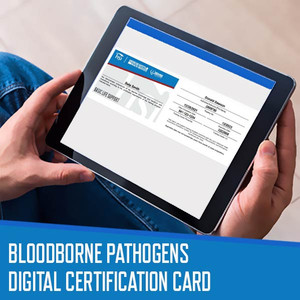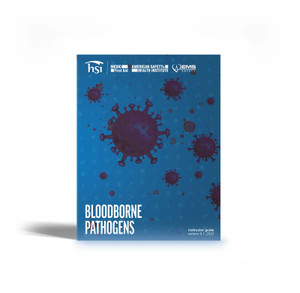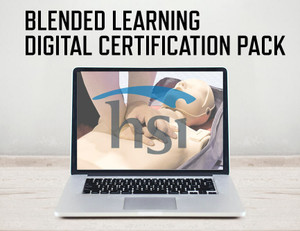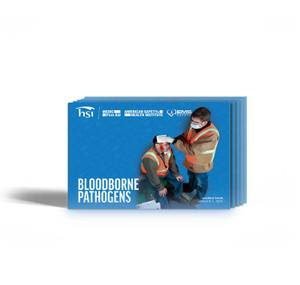HSI Bloodborne Pathogens Program Supplementary Info
Intended Audience
The HSI Bloodborne Pathogens (BBP) program is designed for individuals who are trained as CPR, AED, and/or First Aid providers, as well as employees who have job classifications that involve tasks or procedures with an increased risk of exposure to bloodborne pathogens.
Certification Period
The certification is valid for one year from the month of issue, ensuring participants maintain up-to-date awareness of bloodborne pathogen risks and prevention techniques.
Recommended Time to Complete
- Approximately 1 hour
Instructor Materials
The HSI Bloodborne Pathogens program includes several instructional materials to support learning:
- HSI Bloodborne Pathogens Student Book: Provided for each participant, available in print or digital format.
- HSI Bloodborne Pathogens Instructor Guide: Available for each instructor in print or digital format.
- HSI Bloodborne Pathogens Media Presentation: Includes program video or computer/online blended class.
Delivery Options
The training is available in two flexible formats:
- Traditional Classroom Method
- Blended Learning (combination of online and in-person skills training)
Online Portal Features
The HSI online portal provides tools to enhance learning and training management:
- Streaming and offline video presentation player
- Create custom playlists
- Pre-built digital Performance Evaluations
- Tracking of past, present, and future classes
Student Certification Requirements
To achieve certification, students must meet the following criteria:
- Evaluation of Core Knowledge: Accomplished through informal observation and questioning during training.
- Written Evaluation: Only necessary if required by a regulatory agency.
Class Topics Covered
The HSI Bloodborne Pathogens course covers essential topics for identifying and reducing the risk of exposure:
- OSHA Bloodborne Pathogens Standard: Understanding regulatory requirements.
- Specific Bloodborne Pathogens:
- Hepatitis B Virus (HBV)
- Hepatitis C Virus (HCV)
- Human Immunodeficiency Virus (HIV)
- Hepatitis B Immunization: Understanding the importance and process of vaccination.
- Your Company’s Exposure Control Plan:
- Job Classifications
- Communicating a Hazard in the Workplace
- Reducing the Risk of Exposure
- Managing an Exposure Incident
- Transmitting Bloodborne Pathogens: How exposure occurs and how to prevent it.
- Methods to Control the Risks of Exposure:
- Standard Precautions
- Personal Protective Equipment (PPE)
- When an Exposure Occurs:
- Post-Exposure Follow-Up
- Post-Exposure Prophylaxis (PEP)
- Housekeeping:
- Regulated Waste
- Contaminated Laundry
- Decontaminating Surfaces
Key Benefits of HSI Bloodborne Pathogens (BBP) Certification
The HSI Bloodborne Pathogens Certification program provides several key benefits:
- Compliance with OSHA Standards: Helps meet the training requirements of OSHA Bloodborne Pathogens Standard 29 CFR 1910.1030.
- Comprehensive Training: Covers all critical aspects of identifying, handling, and preventing exposure to bloodborne pathogens.
- Focused on Workplace Safety: Designed for environments where exposure risks are present, ensuring employees understand proper safety measures.
- Flexible Learning Options: Available in both traditional and blended learning formats for convenience and accessibility.
- Hands-On Practice: Engages participants in practical applications of exposure control and prevention.
- Annual Recertification: Ensures that participants remain up-to-date with the latest safety protocols and procedures.







